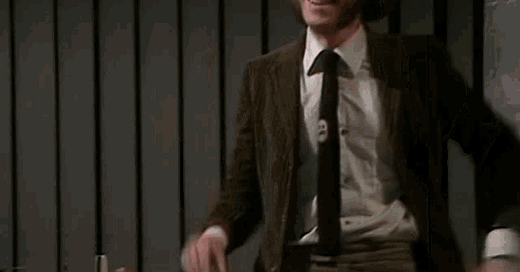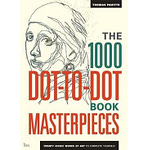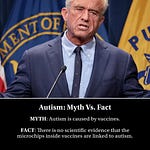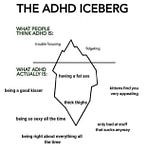I remember a phone call with Melbourne writer Toni Jordan many years ago, when I was first working on the behemoth manuscript that became Mothering Heights. I struggled to describe my work, which was at that time still called Children Are Disgusting (neither me or Dog Man having yet had the brain spark that sent us our titles) but Toni took me seriously, and I’ll never forget her generosity.
It was my lovely late Mum, always giving back somewhere, who taught me that the rewards of volunteering so often outweigh the work. My favourite part of my job at Lifeline is mentoring students, and my other volunteer job is as an Ethics teacher to a local kindergarten class - a headache-maker, but still, a highlight of the week. So while thinking about what 2025 might look like for me, I decided that it would include some time mentoring three aspiring memoirists, free of charge.
Project 2025 (Memoir Version)
Apologies, could not resist :) Here’s the plan:
I will read up to 2000 words of your manuscript, your notes or your outline.
We will Zoom for 45 mins to discuss your work.
You’ll write a second draft and I’ll read it.
A second 45 minute Zoom will explore the changes and set the next direction.
Apply for a place by commenting below or send me a DM if you prefer to be a secret squirrel.
I would offer to mentor fiction writers, but my process for Bleach Church is so utterly nuts that I could not, in all conscience, subject anybody else to it. I feel confident, having published two memoirs, that I have something to offer an aspiring author working in this style, but this novel is proceeding along the looniest highway in Madland.
My first draft is currently sitting at 133, 037 words. Most of them are not good words. They are the post-it-notes of an overcaffeinated wizard, Steve Martin with a toy arrow on his head, speaking to an underwhelmed audience, the Maquis De Sade writing in faeces on his stone cell wall and loving himself sick, Sylvia Plath just before she put her head in the oven.
Judy Blume says ‘the first draft is torture for me. I have a messy mind. First I have to clean up the mess.’ I relate to this, big toime, as Kath Day-Knight would say. I try to reframe the mess of a first draft as freedom, an open road, no-idea-a-bad-one, but I’m much more comfortable with the second draft: the page still littered with question marks and notes-to-self, but delightfully full of squiggles, ready to be shaped and sculpted.
Best of all is the third draft: sentences in place, waiting to be made beautiful or at least satisfying. Everything ready for a dialogue edit, a setting-and-place edit, a cliché-busting edit. The words and I, quietly playing in the corner.
My first draft contains too much. It opens every drawer and spills its contents. It interrupts itself and talks at length and stays too late at the party. It is, in fact, close in style and psychiatric wildness to the process of my darling friend Jayne Tuttle, author of Paris or Die, My Sweet Guillotine and a soon-to-be-birthed third book (can’t wait.)
I asked Jayne her thoughts on facing the madness of a first draft. Here’s what she had to say.
Here is how I feel about first drafts.
I may be biased as I’m currently ripping my skin off working on the line edit of this new book, the almost-final part before the book goes to ‘pages’. So I’m looking back at my first draft with the fondness of an exhausted mother towards her pregnant self - ahhh, sweet times, all that potential, nothing damaged yet.
First drafts are the best. And thank you for asking me to write about them now, because I must remind myself of this, the next time I write a first draft. The first draft is wild and free, or it should be - as free as it can be. First drafts are the freedom to walk down all the paths you want to walk down, see if there’s something there, decide - no - but keep the work you’ve done anyway, because who knows. First drafts are pictures and research and movies and poetry, they’re long walks with the dog and stopping in bushes to write bits of inspiration you’ll never use, but you’ll try to shove in somewhere anyway. First drafts are scouring through old material to find things to shoe-horn into your book, which will change anyway, because it never seems to be what you originally thought it was.
If I could give some advice to myself, for the next book I attempt to write:
- be as free as possible in the first draft. Gather material and write material and make it into one large heaving file. Worry about what it is later, do NOT try to decide anything until you feel you’ve exhausted every angle.
- never worry about the outside eye, offending anyone, that someone will find it and read it posthumously or other (they won’t, it’s only you that thinks it’s of any interest to anyone else). Don’t think about name-changing or detail-altering, let it all hang out, every nasty thought and bad idea, be terrible.
- have FUN. Treat it like a painting - a giant mural - a garden of earthly delights - a pastiche - graffiti - a mashup of colour and texture and shape and form - let it be ugly and beautiful and too too much. Do not sculpt yet. Pile it all on, you can excavate later.
- put no pressure on yourself, even if you have a deadline. If you don’t explore during the first draft, the book will narrow too soon and become boring to work on. Let it be a discovery. Let the first draft be you setting sail to unknown lands. Do NOT know the answers, be open to surprises, allow things to come you could never have expected.
- the work has its own life, it’s not your job to force it, but to explore as widely as you can, to let it come, and grow
- when the first draft is completed, and probably has way too many words and is possibly two or more books in one, let it sit for a while, and do not - i repeat - do not - give it to people to read flippantly. You will learn this lesson the hard way - REMEMBER - the first draft is not yet for others’ eyes. Let it bake. You will know when the time is right to look at it again, because you can stomach it. Print it then, and take it to a quiet place to read. You will see glimpses of something emerging. That is your book.
This advice is to myself only. For anyone else: do NOT work like this. Do not listen to me because working this way is exhausting, terrifying, time-inefficient, weird, confronting and often leads to entire drafts and swathes of text being binned (or rather, put aside to become something else later.) Be a good, diligent writer instead: sit down, write a sentence, write another, plot out the story, attend classes, be clever. If you are looking for advice here, RUN. Read Steven King, Robert McKee, people that work in ordered ways.
I dream of working like them.
But I don’t. I simply never have. I get bored. Because if I know what my first draft is going to be - why do it?
So, Jayne, see above. Your way of working is a glittering circus, a madhouse, and you love it, and right now, as you try to Robert McKee the bloody thing into form and readability, you will look back at that first draft moment with fondness, and wish you had gone harder into the abyss.
Next time you will, now you have written this. So thank you, darling Rachael, for asking.
Love this advice from Jayne! Her writing really is ‘a glittering circus, a madhouse’. I highly recommend you pick up her books for Xmas and give them to everybody you love.
Finally, a little list of things that have lately sparked joy.
Ten good things
A list on my Notes app called Good Things Always Happen to Me. I wish I could credit it, but I can’t remember where I heard or read the idea - DM me if you know. Filling out this list is a way to tune in to the small wonders that happen constantly, good for the soul in a year like this one where the tough things can feel overwhelming. A couple of examples from my list: ‘I got to talk to a 4 week old baby’ and ‘moved the bed and found two pairs of glasses!’ and - this one made me lol as I reread it - ‘when Cass asked Pete (our friend, an archaeology professor) if the Meg was real’
Psychiatric meds: recommend! would do again!
Therapy - as above
The Martha doc on Netflix: what a character study, what an fine aesthetic eye, and what a stone cold bitch! Loved her. Esp. loved her later commentary on the doc: hated it, she looked old (she looked amazing, she is 83) and hated the music, which should have been hard core rap throughout.
The Wife on Netflix, features an incredible performance by Glenn Close. On a side note, I rewatched Fatal Attraction recently too - the sexual politics of it are fascinating slash disturbing from this distance, but the set, costume design and look of the film are just gorgeous. Did not expect that!
A joke from a child that has been unwell for a long time: ‘Rubber? I hardly knew her!’ Joy!
NYT Connections puzzle: a daily, beautiful moment with the fam - although the Squardle is rising in popularity around here.
Below Deck Sailing Yacht and The Housewives of Beverly Hills: new seasons both dropping weekly, old-school style, a delightful slow-drip that = two thrilling little presents every week. Good things are always happening to me on Mondays and Tuesdays.
Hedley Thomas’ book The Teachers Pet that follows his process of investigating the cold-case murder of Lynn Dawson and the making of a podcast. It’s both procedural and personal - a great read.
Bob Mortimer’s memoir And Away: almost too charming for its own good. But not quite.
Happy travels, comrades. May your first draft flow, and may good things happen every day.
PS - The Meg is not real.












Share this post